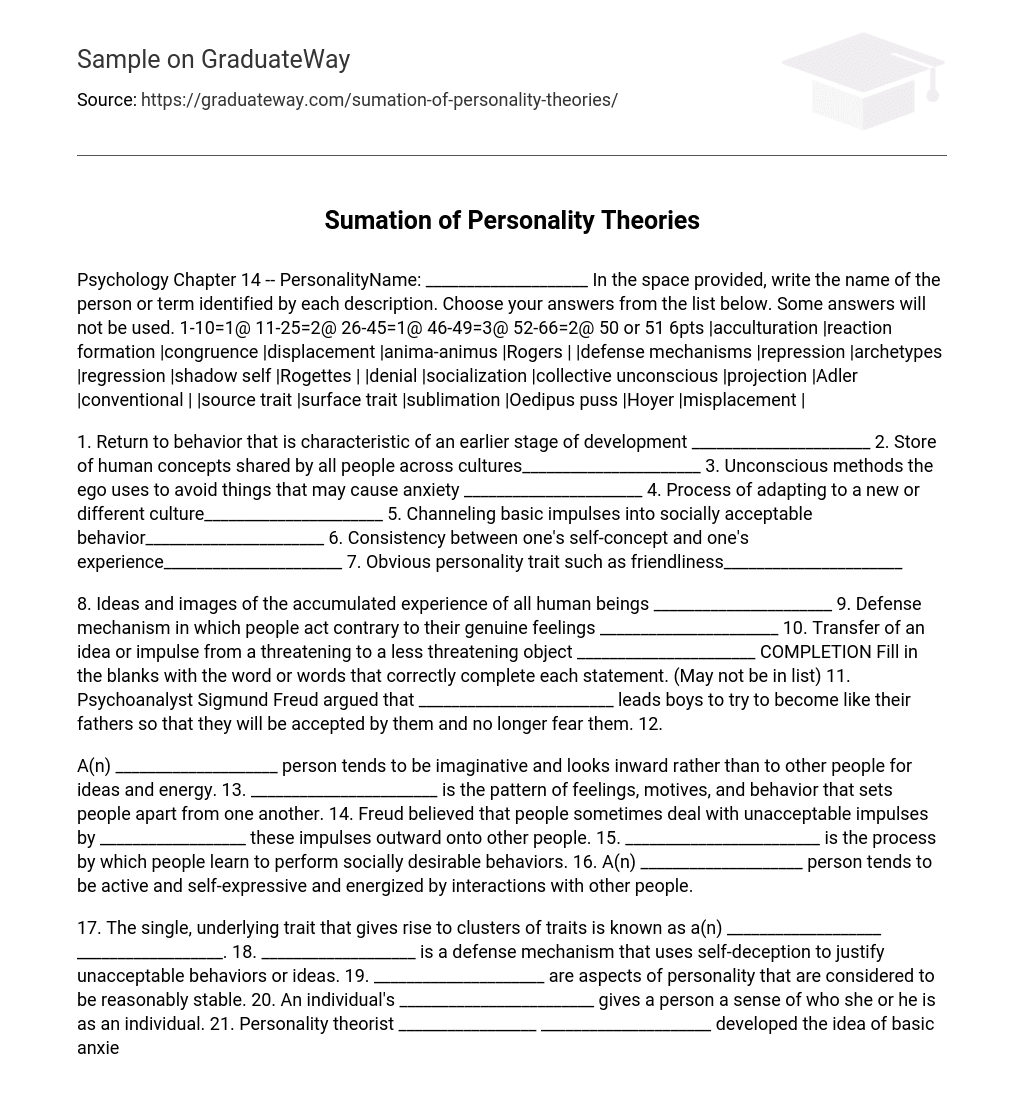Social learning theorists believe that observation and cognitive processes cause behavior. In addition, internal variables such as skills, values, goals, and expectations also influence how a person acts. According to Carl Jung, individuation is the process of creating healthy personalities. Individuation brings together the four functions of the conscious mind, thinking, feeling, intuition, and sensation with the collective unconscious.
Individualists usually define themselves in terms of their personal identities and give priority to their personal goals. Collectivists, on the other hand, define themselves in terms of the groups to which they belong and often give priority to the goals of the group.
Sigmund Freud believed that an individual’s personality developed through a series of five stages. The five stages he identified are the oral, anal, phallic, latent, and genital stages. In the first year of life, infants experience the oral stage. At this stage, an infant explores the world by putting things in his or her mouth.
If a child’s caregivers do not meet his or her needs during this stage, later on the person may develop habits such as smoking, overeating, excessive talking, or nail biting. The orally fixated person may form clinging, dependent relationships. At the anal stage, children learn to control their bodily functions. A conflict that occurs at this stage may cause anal-retentive traits involving an excessive need for self-control or anal-expulsive traits involving carelessness and messiness. The phallic stage begins at about age three and involves a discovery of physical differences between the two sexes and a greater awareness of the body.
Children at this stage may also develop strong attachments to the parent of the opposite sex and see the same-sex parent as their rival. Depression, excessive guilt, and anxiety later in life can have their origins at this stage. By age five or six, children enter the latency stage in which they retreat from conflict with their parents and repress all aggressive urges. The genital stage is the final stage of personality development and occurs at puberty.
The personality theories of Carl Jung, Karen Horney, and Erik Erikson drew on the work of Sigmund Freud. Like Freud, Carl Jung believed that people store repressed memories at an unconscious level. But Jung suggested that people also have a collective unconscious in which human concepts shared by all people are stored. Archetypes make up the collective unconscious and form a foundation on which our personalities develop. Jung also differed from Freud in putting more emphasis on conscious thought. Karen Horney agreed with Freud that childhood experiences, especially the parent-child relationship, play a major role in forming the adult personality.
Horney agreed with Freud that children repress their hostile feelings toward parents. But she differed from Freud in her belief that genuine and consistent love can help erase the damage of a painful childhood. Like Freud, Erik Erikson focused on the important mother-infant relationship in forming an individual’s personality. But Erikson differed from Freud in his belief that people can make real choices. Erikson built on Freud’s five stages of personality development and extended them into adulthood.





